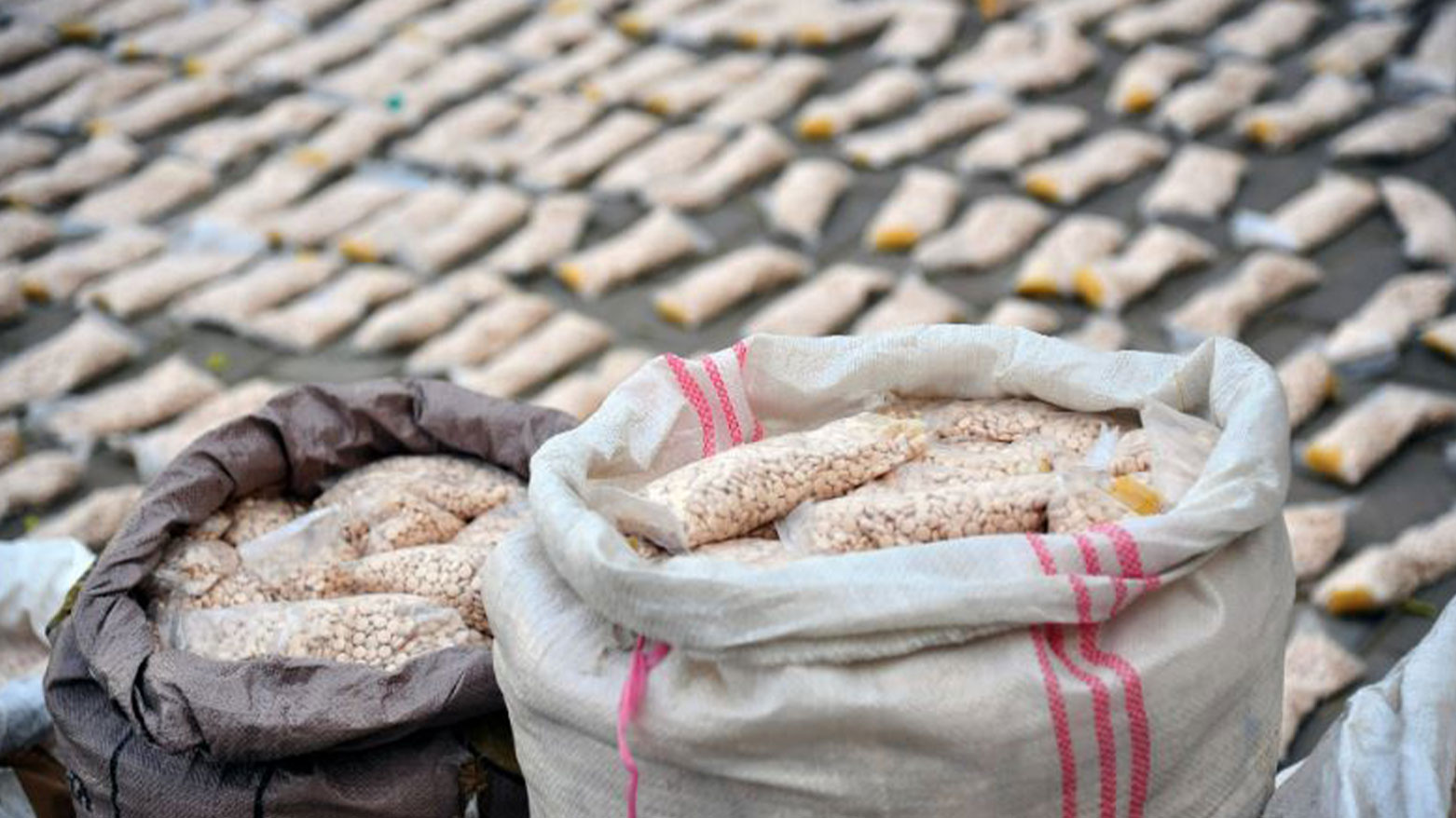‘Sulaimani one of the most prominent drug trafficking hubs’, says Haider al-Quraishi
Safaa Al-Aasam told al-Hurra that drug trafficking has intensified since 2006, with Sulaimani and other governorates implicated in sophisticated drug operations.

Nov. 11, 2024
ERBIL (Kurdistan24) – The specter of drug trafficking and abuse in Iraq looms ever larger, imperiling the nation's future generations and societal stability.
According to a recent report, in Arabic, published by Hamed al-Zubaidi in al-Hurra website, Sulaimani has emerged as a focal point of this growing crisis, where authorities recently uncovered the country’s largest drug production lab, shedding light on the severe and politically protected nature of the trade.
Read More: Iraqi security forces seize drug factory in Sulaimani province
Drug addiction and trafficking, long overshadowed by Iraq’s security challenges, are now considered a greater menace than terrorism, according to security experts.
The report highlights Safaa al-Aasam’s views, a security analyst, regarding the issue.
He told al-Hurra that drug trafficking has intensified since 2006, with Sulaimani and other governorates implicated in sophisticated drug operations. He emphasized, “The threat posed by narcotics is twelve times greater than terrorism.”
Sulaimani at the Center of Drug Operations
Sulaimani Governorate, alongside Najaf, Basra, and Wasit, hosts major drug laboratories, al-Aasam revealed in the report published by al-Hurra.
These operations thrive amidst political protection, reflecting a nexus between drug traffickers and influential figures who shield their activities from scrutiny. The reach of drug trade networks extends from Iran, Syria, and Lebanon, with Captagon pills being a lucrative commodity.
Al-Aasam has underscored that tightening control over these trade routes is challenging, particularly along the porous 1,400-kilometer border with Iran, plagued by corruption and gaps in security.
The Kurdistan Region is actively confronting the crisis. The Anti-Narcotics Directorate reported 1,311 arrests related to drug offenses this year, with Sulaimani accounting for a significant share.
Read More: Over 1,300 arrests in Kurdistan Region's ongoing battle against narcotics
Authorities seized 444 kilograms of narcotics between January and October 2024, a testament to the gravity of the situation.
Youth and Society at Risk
The proliferation of drugs in Iraq has triggered a surge in violent crimes.
In her interview with al-Hurra, social researcher Narmin Mohammed warned that drug addiction underpins heinous acts, such as domestic violence and assaults. She advocated for a comprehensive national strategy, stating, “Political will is crucial to combating this scourge, as it is often shielded by powerful entities.”
Psychiatrist Zainab Abdul-Zarq elaborated on the devastating effects of drug addiction, which ravages both the body and mind. Chronic depression, anxiety disorders, and social isolation afflict addicts, driving them toward criminal behavior.
Abdul-Zarq emphasized that successful rehabilitation requires detoxification and psychological support, underscoring the need for more specialized treatment centers in Iraq.
Socioeconomic Factors Fueling Addiction
The report identifies social problems such as unemployment, poverty, and social disintegration further exacerbating the crisis.
Mohammed highlighted that psychological stress pushes many youths toward drugs, which offer an escape from harsh realities. She called for robust socioeconomic initiatives to address unemployment and prevent addiction.
Community and Governmental Efforts
Despite ongoing awareness campaigns by organizations like the Naqaha Organization for Drug Addiction Treatment, Inas Karim, its head, emphasized that efforts remain insufficient.
"Awareness initiatives are weak, reaching only 35 percent of what is needed," Karim stated. She also stressed the need for specialized hospitals, as Iraq currently operates only one.
The Iraqi government has intensified anti-drug measures, allocating monthly funds for anti-narcotics operations and opening compulsory clinics for rehabilitation.
Haider al-Quraishi from the National Security Council noted that arrests of drug dealers have risen sharply, with over 19,000 arrests in 2023 alone.
He stressed that the most prominent areas where drug trafficking hubs are widespread are the provinces of Basra, Maysan, Wasit, Diyala and Sulaimani, while to the west are the provinces of Nineveh and Anbar, since drugs come from neighboring countries
Nevertheless, al-Quraishi identified persistent challenges, such as unofficial border crossings and inadequate resources for law enforcement. He argued for enhanced international cooperation and the use of advanced surveillance technologies to curb the drug trade effectively.
A Call for United Action
The alarming spread of drugs in Iraq, with Sulaimani as a key battleground, necessitates urgent and coordinated action. Social, economic, and security measures must be harmonized to prevent the nation's youth from falling prey to addiction. As the crisis deepens, experts and community leaders agree that Iraq's fight against drugs demands unwavering commitment and strategic foresight.